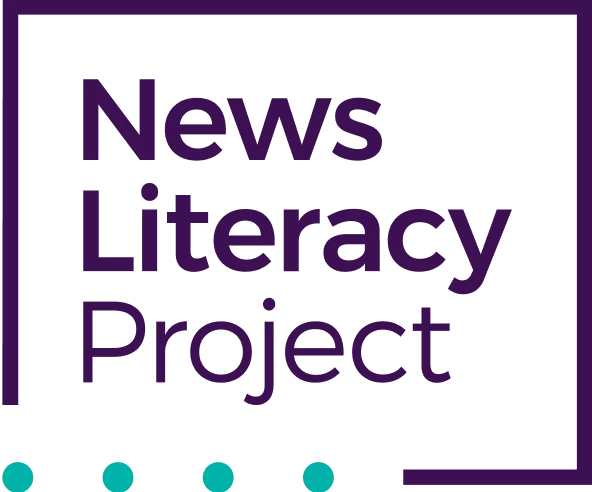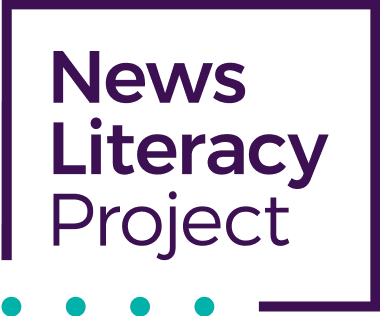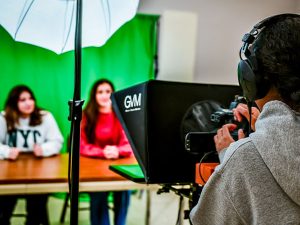July-Oct 23 Movement Building Update
NLP is the leading provider of free news literacy programs and resources for students and adults. Now, we are leveraging our expertise and reach to build a national movement for a more news-literate America, starting with efforts in the classroom. To make this happen, we want to see media literacy established as a graduation requirement, a priority for educator professional learning and a valued skill set for news consumers of all ages.
Read below to keep track of our progress in this area and learn about the steps we are taking to move closer to our vision of news literacy as an integral part of American life.
Jump to:
👷🏽 Movement Builders in the Field
NLP’s district fellows and news literacy ambassadors are making strides to create groundbreaking shifts in education, bringing news literacy into communities across the country.
District Fellowship program
NLP’s District Fellowship program unites education leaders to build a sustainable and actionable plan for news literacy education implementation in their schools. During their two-year commitment to this program, fellows perform a needs assessment and identify the grades and disciplines in their districts best suited for news/media literacy integration. They then work with NLP to create a scalable implementation plan.
- In September, NLP officially welcomed three new school districts to the second cohort of the program.Bloomfield Hills Schools in Michigan, the Cornell School District in Pennsylvania and the Gunnison Watershed District in Colorado join five other districts already in the program.Read the press release to get more details about the program and the new cohort!
Ambassador Updates
The News Literacy Ambassador Program supports local community organizing efforts to fight misinformation and pursue a mutual objective of creating a more news-literate generation of news consumers.
- With 16 ambassadors in 16 cities across the nation, NLP’s ambassadors helped connect over 4,000 teachers with NLP’s resources and programming during the 2022-23 school year! Check out the roundup of this cohort’s impressive accomplishments below.

- In September, 10 educators became news literacy ambassadors for 2023-24, expanding our reach with a total of 19 ambassadors across the nation!
- Miriam Romais, NLP’s director of NewsLitNation®, is excited for what’s on the horizon for this year’s cohort: “We are so pleased to grow this program, as the ambassadors are at the heart of our NewsLitNation educator community. They are active educators themselves, so they understand the needs of their fellow teachers and librarians and make themselves available to work with their local schools, districts and boards of education to help address specific news and media literacy needs within their regions.”
- The new group includes award-winning journalists, authors and podcasters, and sought-after speakers and experts in their fields. Get to know more about them here!

- This fall’s Back to School campaign equipped educators with a robust range of news literacy learning tools for the 2023-24 school year! Guided by our goal to help more educators and students access Checkology® this year, we hosted five webinars to discuss best practices for leveraging NLP’s resources to build a strong news literacy curriculum.
- Veteran student journalism educators Adriana Chavira, a former NLP news literacy ambassador, and David Doerr, a current ambassador, kicked off the campaign as hosts for the first webinar, Back to School with Student Press Rights. Check out everything the Back-to-School campaign offered here!
Partnership Spotlight
- NLP’s educator engagement team has begun reoccurring partnership meetings with current school district partners. Meetings are held every two months and serve as a way for us to check in with partner districts and share NLP news regularly.
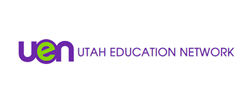

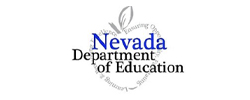
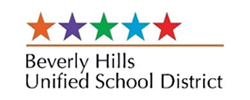
- This year, the partnership strategy team will provide monthly news literacy webinars for educators in Utah called Empowering Critical Thinkers: Strategies for Navigating News and Media. In California, the team will present News and Media Literacy for All.
- Educators in both states will learn about NLP programs and resources through partnerships with the Utah Department of Education, and a collaborative partnership with the California Department of Education, Fresno County Office of Education, San Diego County Office of Education, Santa Clara County Office of Education and the California School Library Association.
- Erin Olson, NLP’s senior manager of educator partnerships, leveraged her classroom experience for a College Media Review article, “Why I asked my students to Google me,” that explains how she created an environment conducive to curiosity and critical thinking.
🏆 Media Literacy Education Landscape: Updates and Movement Wins
Through a partnership with Media Literacy Now, NLP receives monthly reports with updates on all legislation and laws related to media literacy, news literacy and digital citizenship in each state and at the federal level.
Learn about media literacy policies in your state.
Current Landscape Snapshot
We’ll keep you up to date on the latest district, state and federal media literacy education standards changes.
- After passing legislation in 2022 mandating media literacy in public schools, Delaware is one of the first states leading the charge to prioritize media literacy education. You can read NLP’s Education Partnerships Manager Brittney Smith’s insight on how educators can encourage critical thinking in the classroom in this Delaware Public Media article.
- In California, Assembly Bill 873 was signed by Gov. Gavin Newsom, integrating media literacy instruction into the four core subjects that all students learn from kindergarten through 12th grade. It will bring California in line with a small but growing number of states teaching media literacy in grade school.
- “Teaching media literacy is a key strategy to support our children, their families, and our society that are inundated with misinformation and disinformation on social media networks and digital platforms,” said Assemblymember Marc Berman. “Thank you to Governor Newsom for signing AB 873 and affirming that media literacy instruction is essential to keeping our students safer online and to safeguarding the future of our democracy.”
- To date, lawmakers in 18 states have taken steps that help prepare students for participation in the civic life of the nation through media literacy education. Take a closer look at how U.S. education policies are prioritizing media literacy in classrooms in the U.S. Media Literacy Policy Report 2022.
| States mandating some form of media literacy education prior to graduation: | Illinois, Texas, New Jersey, Delaware, Ohio, Florida, Colorado, Nevada, Connecticut, Minnesota and Massachusetts |
| States currently providing funding for media literacy education: | New Mexico, California, Utah, Washington, Connecticut and Michigan. |
| States with statutes encouraging media literacy: | California, Colorado, Connecticut, Florida, Hawaii, Massachusetts, New Mexico, Ohio, Rhode Island, Tennessee, Texas, Utah and Washington. |
To date, lawmakers in 18 states have taken steps that help prepare students for participation in the economic and civic life of the nation through media literacy education. Take a closer look at how at U.S. education policies are transforming to prioritize media literacy in classrooms in the U.S. Media Literacy Policy Report 2022.
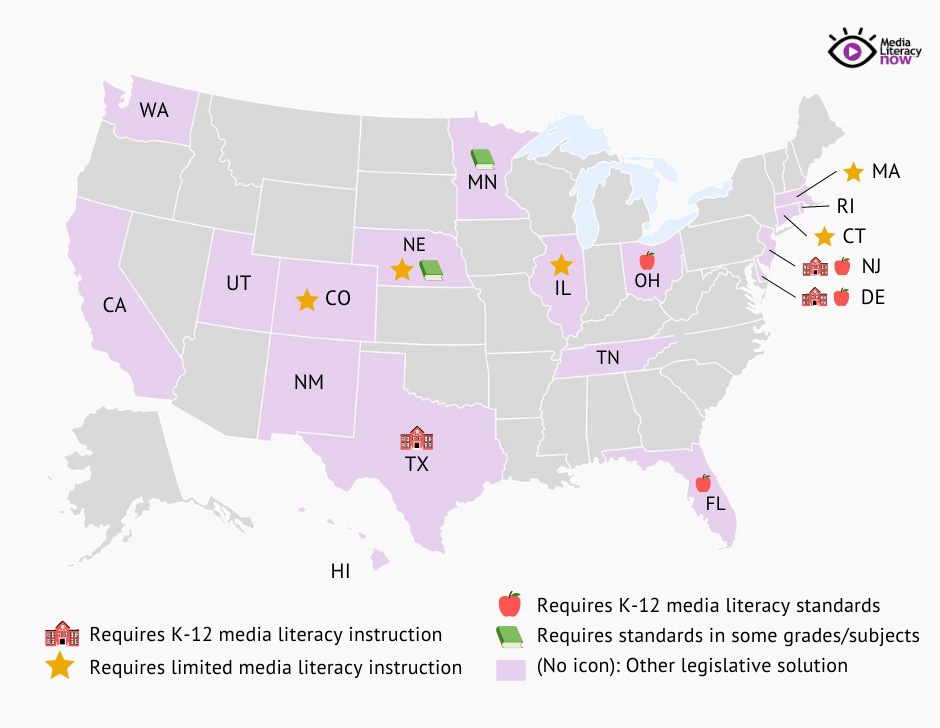
News Literacy Movement Wins
- The team that brings you NewsLitNation®, NLP’s news literacy education network, has expanded! Meet Nierra Coleman-Jones, Manager of NewsLitNation for NLP.
- All Checkology lessons are now aligned to the five national news literacy standards that define the core competencies students need to be news-literate, including English language arts, library and media studies, social studies, science, and technology. Explore the Standards-Aligned home page to learn how Checkology lessons help news literacy students gain essential life skills.
- NLP has developed a Framework for Teaching News Literacy, which includes news literacy standards, essential questions and knowledge/skills objectives, along with suggested performance tasks and learning activities. Our framework supports educators as they integrate news literacy into existing curriculum or as the basis for creating stand-alone courses or units.
